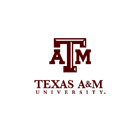- News and articles
- Find usIDP AustraliaIDP BahrainIDP BangladeshIDP CambodiaIDP CanadaIDP ChinaIDP EgyptIDP GhanaIDP Hong KongIDP IndiaIDP IndonesiaIDP IranIDP JordanIDP KenyaIDP KoreaIDP KuwaitIDP LebanonIDP MalaysiaIDP MauritiusIDP Middle EastIDP NepalIDP New ZealandIDP NigeriaIDP OmanIDP PakistanIDP PhilippinesIDP Saudi ArabiaIDP SingaporeIDP Sri LankaIDP Taiwan, ChinaIDP ThailandIDP TurkeyIDP UAEIDP VietnamIDP Corporate
- Social
- English
- Where we operate
- Courses
- Scholarships
- IELTS
- About IDP
- Student Essentials
- News and articles
- Find us
- Find us
- Find nearest IDP offices
- IDP Australia
- IDP Bahrain
- IDP Bangladesh
- IDP Cambodia
- IDP Canada
- IDP China
- IDP Egypt
- IDP Ghana
- IDP Hong Kong
- IDP India
- IDP Indonesia
- IDP Iran
- IDP Jordan
- IDP Kenya
- IDP Korea
- IDP Kuwait
- IDP Lebanon
- IDP Malaysia
- IDP Mauritius
- IDP Middle East
- IDP Nepal
- IDP New Zealand
- IDP Nigeria
- IDP Oman
- IDP Pakistan
- IDP Philippines
- IDP Saudi Arabia
- IDP Singapore
- IDP Sri Lanka
- IDP Taiwan, China
- IDP Thailand
- IDP Turkey
- IDP UAE
- IDP Vietnam
- IDP Corporate
- Social
- Language Switcher
- IDP Education /
- Colleges and Universities /
- United States /
- Texas A and M University - ... /
- Bachelor of Science in Indu...


Location
United States
Qualification
Bachelor Degree
Fees
USD20644
(2025)
Duration
4 Year(s)
Next intake
25 August 2025
Entry Score
6.0
IELTSCourse info
The mission and vision of the Industrial Distribution Program at Texas A&M University is to:
Prepare graduates for sales engineering, sales management, supply chain operations and logistics management mid-management positions with wholesale distributors, who purchase, warehouse, sell, distribute and service a wide variety of products, and with manufacturers who sell through distributors.
Conduct applied research and develop new best practices in industrial distribution, logistics, and supply chain management that mutually benefits the university and its industrial, governmental, and academic collaborators.
Provide service and leadership in the promotion and advancement of the department, the university and the industrial distribution profession.
Maintain a nationally recognize
- Scholarships
- Internships
Course fees are indicative and should be used as a guide. to get an accurate price.
Duration: 4 Year(s)
Fees: USD20644
| Intake | Location |
|---|---|
| Spring (January), 2026 | College Station |
| Fall (August), 2025 | College Station |
| Fall (August), 2026 | College Station |
| Spring (January), 2027 | College Station |
Entry requirements for Texas A and M University - College Station
You are an international freshman if you:
are not a citizen or permanent resident of the United States or
are not graduating from a Texas high school after three years in residence in Texas and
are a student without college credit or
earned college credit prior to high school graduation (dual credit/early college high school)
English proficiency can also be demonstrated by:
Minimum TOEFL i-BT score of 80
Minimum TOEFL Essentials score of 8.5
Minimum IELTS Academic test score of 6.0 overall band (Texas A&M University does not accept the IELTS General test)
When to Apply: Spring: August 1; Fall: December 1
Application Deadline
The application deadline isn't available Speak to an IDP counsellor for more detailed information
Further information
If you aren't eligible for the above entry requirements, you might ant to explore pathway options at Texas A and M University - College Station. If you want to find out more, speak to our counsellors.
THE World Ranking
143rd / 1250
THE World RankingWhat our students think
We’ve haven’t received any reviews for this institution yet.
Recommended for you
- Associate Degree
- Walnut , United States
- Next intake:06/2025
- Entry Score: IELTS 4.5
- USD12510 (2025)
- Advanced Certificate
- Walnut , United States
- Next intake:06/2025
- Entry Score: IELTS 4.5
- USD6255 (2025)
- Associate Degree
- Glendale , United States
- Next intake:06/2025
- Entry Score: IELTS 4.5
- USD7800 (2025)
- Advanced Certificate
- Glendale , United States
- Next intake:06/2025
- Entry Score: IELTS 4.5
- USD7800 (2025)
- Associate Degree
- Glendale , United States
- Next intake:06/2025
- Entry Score: IELTS 4.5
- USD7800 (2025)
- Advanced Certificate
- Walnut , United States
- Next intake:06/2025
- Entry Score: IELTS 4.5
- USD12510 (2025)
- Advanced Certificate
- Walnut , United States
- Next intake:06/2025
- Entry Score: IELTS 4.5
- USD12510 (2025)
- Advanced Certificate
- Walnut , United States
- Next intake:06/2025
- Entry Score: IELTS 4.5
- USD6255 (2025)
Your action plan
Step 1
Shortlist your courses
Choose the best three courses you’re most likely to pursue.
Step 2
Check your eligibility
Get an instant in-principle offer for courses with the IDP FastLane tag.
Step 3
Apply through IDP Live
Fill out the form once and use it to apply to multiple courses.
How does IDP FastLane work?
With the FastLane 'Offer in Principle', you'll know in minutes if you'll be accepted!
Select an institution and course
Create your academic profile
Submit your application for an 'Offer in Principle'
Your chosen institution(s) will send you a decision in minutes!
Get ready to apply with an expert counsellor




